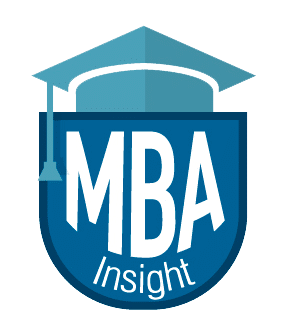Q&A WITH THE ROSS DIRECTOR OF MBA ADMISSIONS

Matt Ganderson, Managing Director, Full-Time and Global MBA Programs
1) What’s the single most exciting development, change, or event happening at Ross’s MBA program this coming year? There are so many new and exciting developments at Ross, but one in particular that we’re excited to share is the new Environmental, Social, and Governance (ESG) concentration. Michigan Ross students have always had many paths to support their passion and education in areas such as sustainability, but now they can earn a concentration in ESG in the traditional two years of a Full-Time MBA Program by taking 12 credits through courses within Ross and the School for Environment and Sustainability. Some course examples include Strategies for Sustainable Development, Sustainability Finance: Investment Model for Green Growth, Poverty & Inequality, and Frameworks for Understanding Social Impact Organizations. 2) What 2-3 qualities, skill sets, experiences do your program value most in applicants? We are in search of well-rounded applicants who will excel at Ross. We assess applicants based on three key categories: academic potential, team and leadership skills, and program fit. When evaluating academic potential, we closely examine undergraduate (and graduate) academic performance, standardized test scores or evidence of academic readiness, and quantifiable career achievements. In assessing an applicant’s team and leadership abilities, we review their resume, interview responses, essays, and letters of recommendation. Lastly, we gauge fit by considering the applicant’s responses to our application criteria. We are looking for candidates who can enrich the program’s culture and diversity by both benefiting from and contributing to the learning environment. Here are some of the qualities we highly value in applicants: 3) Do you have any application tips (for essays & recommendations) for MBA applicants? Are there common mistakes that applicants should try to avoid? To prepare a strong application for Ross MBA, follow these three essential steps: Andrea McHale, Director, Full-Time and Global MBA Admissions, Michigan Ross 4) How important is standardized testing for an MBA application to Ross, and is there a preference for GMAT, GRE, EA for your full-time program? In evaluating academic potential for success in the demanding Ross MBA program, standardized tests serve as a helpful benchmark. We accept both the GMAT and GRE, as well as standardized tests associated with dual degree programs, and have no preference for which test applicants choose to include with their application. Additionally, for the past three application cycles, we’ve provided the option for applicants to submit a statement of academic readiness in lieu of a standardized test. This flexibility allows strong candidates to showcase their academic readiness without relying on a test score. For the current year, we will continue to require that all candidates either submit a standardized test score (such as the GMAT, GRE, MCAT, LSAT, PCAT, or DAT) or provide evidence of their academic readiness as part of their Michigan Ross Full-Time MBA admissions application. If you opt to demonstrate your academic readiness without a test score, you’ll be expected to respond to a short essay question explaining why you are prepared to meet the academic challenges of our program. Standardized test scores offer an additional, pertinent data point for the admissions committee to consider within our comprehensive evaluation process. While a strong test score can bolster an applicant’s candidacy, please note that it is not a mandatory requirement for admission. 5) What resources are available at your MBA program to assist with internship and full-time job opportunities? The Career Development Office begins preparing students soon after they commit to Ross. They start by participating in an interactive online course to fine-tune their interests, values, and focus. This is done through one-on-one coaching, workshops, and alumni panels. Our goal is to help students dig deeper into why they are pivoting careers, what to look for in their next job, and understand what those next jobs look like. Before coming on campus, we help students to have a really good first draft of their resume, which we find helps to reduce stress at the beginning of the term. During orientation, we have Career Action Days as part of Orientation, where students get to know our team in person, practice networking, dig deeper into what recruiters are looking for, and learn how to stand out in the recruiting process. Once school starts, besides 1:1 coaching and workshops, Michigan Ross’ stand-out offering is our Functional Accountability Career Teams or FACT groups that meet weekly as a group of 5-7 students led by a peer coach and under the direction of one of our staff coaches. These groups walk students through recruiting for a specific function like consulting, tech product manager, investment banker, or brand manager. Even though there are similarities with recruiting, there are also a lot of differences by function, so having these weekly groups allows us to help students fine-tune those nuances. These groups also function as great support groups. The ecosystem we have put together of our expert staff coaches, the employer relations team who manages relationships with hundreds of great companies, our peer coaches who have just gone through the recruiting process, and the professional clubs we work closely with, all provide an excellent support system no matter what students are recruiting for. Our goal is to not only help students get their first job after their MBA but also help them to develop the skills to conduct successful searches for life. 6) What is the one aspect of your program that you wish applicants knew more about? There are so many opportunities for students at Michigan Ross, outside of academics, from student-run clubs to community-building activities to exploring life in the wonderful town of Ann Arbor. And of course, everyone has heard of the world famous Big House! But one aspect of the program that applicants should know is the amount of flexibility one has within the curriculum. At Michigan Ross, MBA students really have the freedom to develop their own academic journey, in part due to the number of dual degree programs and top 10 academic units across the university, including public policy and law, just to name a few. In fact, there are 19 approved dual degree options for MBA students and students can even design their own! In any given year, 10-15% of MBA graduates are dual degree earners. 7) Where is a favorite hangout for Ross MBA students? Ann Arbor is one of the best college towns in America, so students here find no shortage of coffee shops, farmer’s markets, bars, and restaurants to explore. However, there are a few spots where Ross MBA students frequent. One is “The Bus,” which is an actual bus where MBA students tailgate together before every home football game; it’s great to see the Ross MBA community come together to root for the Leaders & Best! Another popular hangout spot is Necto Nightclub, where Rossers rent out the space for social + cultural events, such as the annual Diwali and Latin Vibes dance competitions. Ann Arbor is a phenomenal city with great access to public parks, and many students take advantage of the University of Michigan Nichols Arboretum. 8) Anything else we’ve missed? How to Impress the Michigan Ross MBA Admissions Committee Michigan Ross Full-Time MBA – What are your chances of getting in?




[…] See this Q&A with the Ross Director of MBA Admissions […]